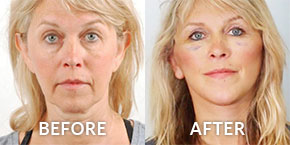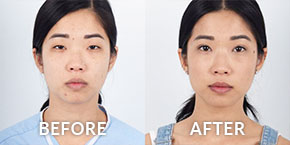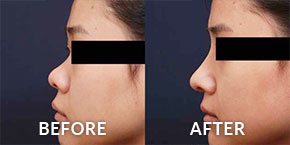Preparing for Surgery
Pre-operative care and post-operative care processes for eyelid surgeries are similar but may have slight differences for each surgeon. This section is based on the Pre-Op and Post-Op care of Dr. Kenneth Kim Plastic Surgery.
Prior to Surgery
It is highly recommended that patients stop using temporary alternatives such as eyelid tape and glue, as it stretches and thickens the eyelid skin, making surgery more challenging. Patients must not take aspirin, ibuprofen (e.g., Advil), or other blood thinning medications to avoid excess swelling and bleeding. If you are taking blood-thinning prescription drugs such as Plavix or Coumadin, make sure you inform your plastic surgeon as well as your internist prior to your surgery. You should not discontinue your prescribed medications without the consent of medical clearance approval of the prescribing physicians.
The following drugs should be avoided for at least two weeks before and after surgery.
- Aspirin
- Plavix
- Coumadin
- Celebrex
- Fish Oil
- Omega 3
- Herbs, Red Ginseng Concentrates
ARRANGE A RIDE AND A CAREGIVER
Make sure you arrange a ride home, as you will not be able to operate a car after your surgery if oral sedation was used during your surgery. Your ride must be arranged and confirmed prior to surgery. The individual providing you a ride must contact our office upon arrival so that you may be released. Your caregiver should stay with you for at least 24 hours after your surgery.
PLAN AHEAD
Make sure you plan ahead for your arrival home after your surgery.
OUT OF TOWN PATIENTS
Plan on staying in town for at least 5 days (in some cases 3 days) following surgery for your follow-up appointment.
The Day of Surgery
PRESCRIPTION MEDICATION
On the day of surgery, continue to take your medication in accordance with your prescription.
FOOD AND WATER
During your consultation, your doctor will inform you of the type of anesthesia you will be given. If you are receiving local anesthesia, your daily diet schedule will not be affected prior to your surgery date. It is recommended that you do stay away from caffeine at least four hours before your surgery.
Patients may be given oral sedatives, such as Valium (diazepam) or Xanax (alprazolam) on the day of surgery.
Oral sedatives will calm patients and provide relaxation during surgeries. However, if you are going under the general anesthesia (extremely rare for eyelid surgery), avoid consuming any food or beverages, with the exception of water, the night before and on the day of surgery.
CLOTHING AND MAKEUP
Do not wear any makeup or lotion on the eyes. Wear comfortable clothing, as you will want to be comfortable during and after the surgery process. Plan on staying home after surgery as you may feel tired and drowsy from the remaining anesthesia or oral sedatives in your system.
Post Operation
Provided below is a list of what to expect, do, and avoid post- surgery.
WHAT TO EXPECT
- Swelling, bruising
- Moderate amount of fluid from the operated area which is a combination of local anesthesia and blood
- Temporary eye irritation
- Increased amounts of discharge from the eyes
WHAT TO DO
- Apply ointment on the suture with a cotton swab 3 times a day
- Apply prescribed ointment inside the eye, if recommended by surgeon
- Apply lubricant eye drops for temporary dry eye relief
- Apply an ice pack on your eyes. Compressing your eyes with an ice pack should be done as frequently as possible for at least five days until your sutures are removed. Do not over-aggressively apply the ice pack against your eyes. Apply with light to moderate pressure but avoid icing to the point of losing sensation from the ice.
- For out of town travelers, it is recommended you stay near the clinic where you received surgery for your follow-up appointments. The date of the follow-up appointment may vary depending on the procedure you received, and you may not even need one.
- The follow-up appointment for non-incisional eyelid surgery is 3 days after your initial procedure.
- The follow-up appointment is 5 days post-surgery for all other surgeries.
WHAT TO AVOID
- Avoid showering for at least 24 hours for upper eyelid procedures and 48 hours for lower eyelid procedures.
- When showering, avoid getting the area of the eyelid wet. You will be able to proceed on your regular showering schedule once the doctor removes the tape off your eyelids on the day of your follow-up appointment.
- Avoid driving when you are on any type of medications or have impaired vision.
- Avoid wearing contact lenses for at least one month, and instead wear your eyeglasses.
- Minimize your sun exposure and wear a pair of UV protective sunglasses.
- Avoid any strenuous exercise and activity; light-moderate exercise is encouraged. After a month, you can go back to your regular exercise routine.
- Avoid rubbing your eyes, as it will put significant pressure on the area where you received surgery.
- Avoid applying eye makeup for one month. For those who have received epicanthoplasty, you must avoid applying makeup for at least three months. This is imperative, as when makeup is applied, pressure is placed on the incision sites inducing scar formation. Any type of pressure or stretching on or around these areas should be avoided.
- Avoid the intake of salty foods since salt induces the volume of swelling. Opt for a well-balanced, sensible diet.
- Avoid the heavy consumption of alcohol. Only have a moderate amount, as drinking strains your immune system.
Recovery Process
This is an exciting moment in your life that will change the appearance of your eyes. Although you may not see the desired outcome immediately after surgery, be patient, as the results can take anywhere from 3 weeks to 3 months, depending on the type of surgery you received.
Typically, 80% of the swelling will go down by the 3rd week post-surgery, 90% by 3 months, and 100% within 6 months.
The recovery time may also depend on the patient, as each individual is different and unique. Look forward to your ideal, more vibrant, and beautiful outcome as you will finally achieve the appearance that you have yearned for.











